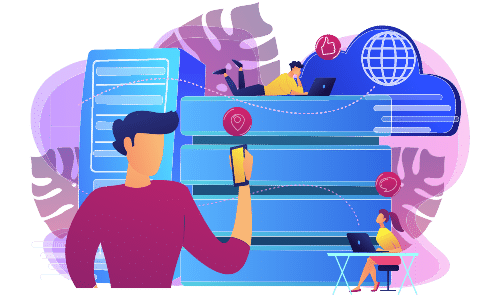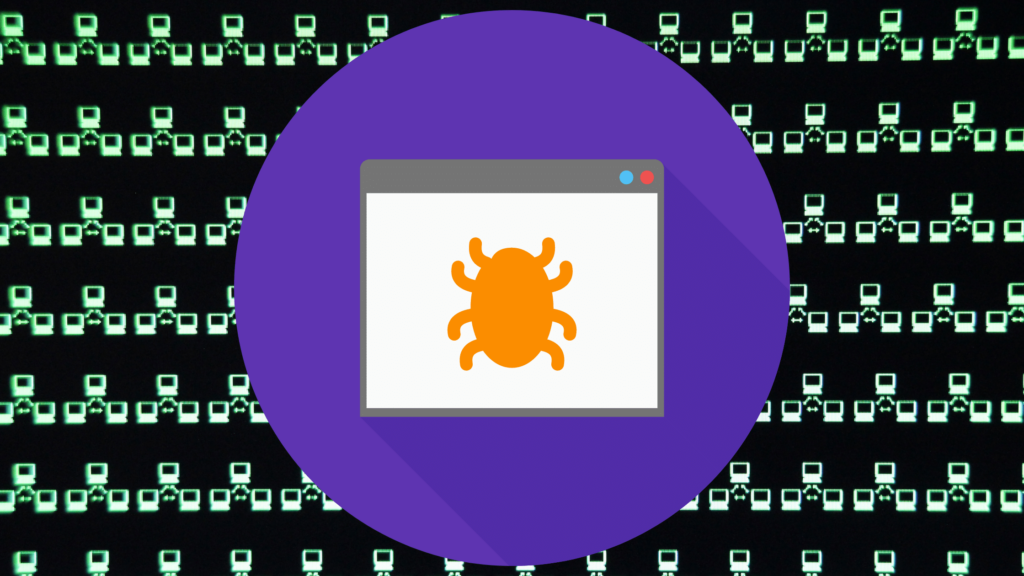Web scraping is the term we use for the process of grabbing data from a website. It can be point-and-click simple or start-questioning-the-meaning-of-life complex. So it’s always good to have structure and understand the process as you go.
Just like paint drying and dog grooming, web scraping is as boring as it sounds.
Until today. (I may have just set the bar a little too high)
In this article, we’ll break down web scraping into some easy steps. By the end, you should be able to use them right away!
How do you scrape web data?
Web scraping refers to that moment when you decide you want information from a website, and need to get it out without going through official channels.
For example, it doesn’t make sense to crawl Wikipedia page by page. You’d probably end up with nervous ticks if you had to deal with all of their javascript. Besides, you’d probably get caught by an automated bot before you even get your mitts on any data.
What you can do is grab a list of links to the Wikipedia articles you want, and then use them in a program. We call this program a ‘bot’. The bot will open each link one after another and add more links as it goes along. Then you can scrape all the information you need.

It’s important to note that you’re not using any sort of hacking or cracking. You’re just proving access and then scraping whatever you want from that page in a process we call ‘screen scraping’.
Web scraping vs going through the front door
Web scraping can seem like you’re not playing fair. On the one hand, you’ve got the people who you want to give you their data. On the other, there’s you – jumping hurdles and breaking rules just to get what you need.
There are a few reasons you might go through all this trouble though:

Speed
It’s nearly useless to scrape a website with any sort of crawl rate limit. What if you have to go through official channels every time you want something? It would take forever! As I mentioned before, you can grab links in bulk and spread them out over days (or weeks even!). That way, you won’t trigger any of those annoying checks or limits that we find on most sites.
Volume
You might not need thousands of pages from Wikipedia, but what if you need to grab information from 5 million Amazon product pages? If you use the official routes you’d probably run into some sort of error due to your IP address. Then you’d have no choice but to abandon your mission! With web scraping, you just wait for all the results to be delivered to you.


Accuracy
Scrape something improperly and it’s gone – forever. More on that later on, but we need to cover it briefly right now. When you use web scraping you can be 100% sure you get what you set out for because you can grab all the information available. But you need to do it in such a way that you don’t trigger any sort of error message or punishment.
Convenience
How much time do you want to spend learning how to scrape data? How many hours are you willing to put into gathering the data you need? What if you spent that time on more creative things, instead of crawling all over the web for one simple piece of information? For some people, the benefits of web scraping far outweigh whatever cons they can think of. For others, it just doesn’t feel worth it.


Trust
What if you could trust the site you’re trying to scrape? What if you got all of your data from public forums filled with real people who would never ban or block you? You’d have a lot more freedom in your life! The truth is though that most sites don’t want you to scrape their data. They go through a lot of trouble to present it in just the right way. When someone comes along and ruins that they might end up with a block or worse.
The truth is though that there’s no way around it. It’s not like you’re stealing anything or doing any real damage. You’re just trying to access what was freely given to you in the first place. You might get your data a little faster than you were before, but you’re not doing any harm to anyone or anything.
In the next section, we’ll take a look at some of the different ways you can go about scraping a website. It depends heavily on what you need and just how far you want to go with coding and stuff. Let’s get started!
Types of web scraping
There are many reasons you might scrape a site. You can gather contact information for an entire company or product prices so you can compare them across several online stores. As you can see, there are many times when web scraping is the right call. However, if you start to head down the wrong path you can easily receive punishment from your target site.
Let’s take a quick look at some of the most common types of scraping you could do.
Data Extraction
This is something you’ll see crop up constantly throughout these articles, simply because it’s one of the best applications for web scraping! If you need to grab any sort of data from a website, you can often set up a scraper with simple tools and easy-to-learn languages. No heavy lifting is required!


Citation Harvesting
You might not care about what other people say on their websites, but citation harvesting is invaluable if you want to make sure to get found by search engines. By harvesting the web you ensure you have the most possible sites linking to your website.
Outreach
This is one you’ll see again and again throughout this introduction. You might not want to scrape others’ websites but you’re always going to want to contact them. You can use scrapers to find the right email addresses or contacts in order to reach out for permissions.


Product Comparison
Doing research or coming up with ideas for new products or services isn’t easy. Web scrapers give you all sorts of data that you never could have gotten without them. You can gather reviews, prices, contact information – anything at all that helps you make a better decision.
Competitive Analysis
If you already operate in a market, you want to know how you stack up against the competition. You can use web scrapers to learn about their products and prices and adjust your own strategy accordingly. You might not be able to match them dollar for dollar, but you sure as heck don’t have to lose out entirely either!


Content Curation
Scraping can help curation in many ways thanks to how simple it is to gather large amounts of data without being seen. You don’t need any special tools or skillsets – just turn on your scraper and get what you want! Plus, you can then throw all that data into anything you want – like an RSS feed for example. Your audience can enjoy all of your scraped information however they like.
Research
There are times you just don’t know you want something you need, you only know you need it. What you really should do is take some time to learn what you can about the market you’re trying to enter. Scraping websites gives you plenty of information about other people and companies who might help you better understand what you need!

Practical tips for web scraping
There are plenty of reasons you should consider web scraping, but there are also some things you might want to avoid in the practice as well. Let’s take a look at some points that could make or break your decisions.
- Accessibility: You might scrape any old website you can get our hands on, but you’ll have a much easier time scraping from sites you have permission to access. These are usually public-facing or at least not privacy-protected in some way or another. That way, you shouldn’t run into any issues!
- Accuracy: One word you should always be thinking about is accuracy. You don’t want to rely on a scraper that doesn’t do what you need it to and you don’t want your data gathering efforts to come back with poor results. The best thing you can do about this is set up multiple scrapers and compare their results against each other. You shouldn’t have a problem with accuracy then!
- Delay: You’re going to need some time before you see any results from your scraping efforts. You might have to wait minutes or you could be waiting hours. You don’t want to devote too many resources to grab a large amount of data if you don’t think you’ll use it!
- Legal Consequences: Web scraping is usually legal, but you still have to be careful. You don’t want to end up in court for violating someone’s terms of service or infringing on their copyrights. That’s why it’s always a good idea to contact the domain owner and ask for permission.
- Detectability: The issue here is pretty obvious. If you get caught web scraping for things you shouldn’t, you can expect trouble sooner or later. You never know who’s going to stumble across your activities and start asking questions, so the best thing you can do is hope they don’t find you, or work to cover your tracks!
Proxies for web scraping
The last two points bring up an important idea. Even if you don’t overload your target website or violate their terms of service – it’s crucial that you use proxies. Proxies mask your IP address so that even if you receive a block, you can continue web scraping with the next IP address in the pool.

If you’re unfamiliar with proxies, you can start here to brush up on the basics.
I will say one thing here though.
You have a choice to use residential or data center proxies. As you’ll see, data center proxies can burn up a lot of time and energy and their redeeming quality of speed isn’t necessary for web scraping.
On the other hand, rotating residential proxies are easier to use and never slow you down with IP bans or other punishments.
In Summary
Web scraping is more than just gathering data – it’s finding ways that you can use what you find to do work for you. Whether it’s simply getting direct contact details of every company behind a product or harvesting citations that will rocket your website up in search rankings.
Whatever it is you want to do with web scrapers, there’s bound to be one (or many) types of scraping that are perfect for the job you need!
I should probably wrap this up and get ready to head into the first part of the series. We’ve covered a lot of information here, but there’s plenty you still need to know about web scraping before you can say you’re an expert.
There are many reasons we might consider scraping a website – is there anything you’d love to gather from across the web? Is there something specific that would be impossible without scraping? Let us know in the comments section below!
Tired of being blocked and banned?
Get the free guide that will show you exactly how to use proxies to avoid blocks, bans, and captchas in your business.
Send Me The Free Guide Now!
Tired of being blocked and banned?
Get the free guide that will show you exactly how to use proxies to avoid blocks, bans, and captchas in your business.
Send Me The Free Guide Now!



